|
|
|
|
|
|
|
|
|
5th Northern Oil and Gas Research Form, October 11-13, 2017 (Anchorage, Alaska USA). The United States is hosting the 5th Northern Oil and Gas Research Forum from October 11-13, 2017, in Anchorage, Alaska. This meeting will feature current research and highlight information needs for management of petroleum activities in the US and Canadian Arctic. Please visit the Forum's website (here) for additional details. Please use the website link above for information on registration, agenda, lodging and transportation.
2017 Arctic Circle Assembly, October 13-15, 2017 (Reykjavik, Iceland). The annual Arctic Circle Assembly is the largest annual international gathering on the Arctic, attended by more than 2000 participants from 50 countries. The Assembly is held every October at the Harpa Conference Center and Concert Hall and is attended by heads of states and governments, ministers, members of parliaments, officials, experts, scientists, entrepreneurs, business leaders, indigenous representatives, environmentalists, students, activists and others from the growing international community of partners and participants interested in the future of the Arctic.
|
Media
Annual Arctic Circle Assembly Begins. The annual Arctic Circle Assembly began today at Harpa Conference Centre in Reykjavík. The assembly is being held for the fifth time to discuss issues such as climate change, energy, and security in the Arctic. Arctic Circle is a non-profit and non-partisan organization which is "the largest network of international dialogue and cooperation on the future of the Arctic," according to its website. Ex-President of Iceland Ólafur Ragnar Grímsson is chairman of the organization, which brings together governments, think tanks, environmental associations, indigenous communities, and other parties to discuss issues facing the Arctic. In an interview with Kjarninn, Ólafur touches on the principles behind the network: "I believed that in order to succeed... we would have to be democratic, the debate would need to be open and between equals, that everyone would have a say." Iceland Review
Experts Say Balance Between Industry and Environment in Arctic is Vital. The current state of the environment in the Arctic territories, where active industries develop, is such, that it is vital to find a balance between further industrial development and keeping the environment, said participants in the ecology conference - Environment and Industries in the North, which took place in Krasnoyarsk. Effective measures, they said, could be insuring businesses in the northern regions and attracting large-scale investments in environmental projects. TASS
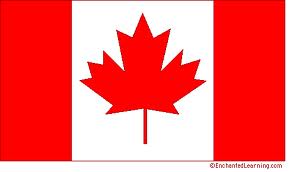 [Canada] New Arctic Policy Coming in January. [Canada] New Arctic Policy Coming in January. The federal government expects to have a new Arctic policy published by late January, according to a document obtained by iPolitics. Briefing notes under preparation for Stéphane Dion, Canada's ambassador to Germany and envoy to the European Union, suggest the Arctic Frontiers Conference - scheduled for January 21 and 22, 2018 in Tromso, Norway - would be a good place to introduce a new Canadian Arctic plan to Europe. iPolitics
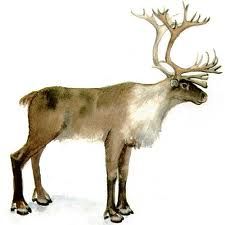 Caribou Comeback: Can the Species Ever Return to NB? Caribou Comeback: Can the Species Ever Return to NB? When the leaves in the forests of New Brunswick change their colours, it signals to thousands of hunters to head into the woods in search of this provinces "big three" - moose, black bear, and whitetail deer. But the nearly century old absence of a fourth big game animal, the woodland caribou, has had some hunting groups question if the native animal could ever be reintroduced in the province. "They were here, as far as we know, since the glaciers left," said Gerry Parker, a former officer with the Canadian Wildlife Service who studied caribou in the Canadian Arctic. "They were here thousands of years." CBC News
National Guard Focuses on Increasing Operations During Tour of Nome, Brevig Mission, and Teller. Major General Laurie Hummel, the Adjutant General of the Alaska National Guard and Commissioner of the Department of Military and Veterans Affairs, is touring through Western Alaska this week, along with her military entourage from Joint Base Elmendorf-Richardson... "One of the things that we wanted to accomplish while we were here is talking to elders, community leadership, about starting and establishing an Alaska State Defense Force attachment here at the armory in Nome." Alaska Public Radio
|
|
Future Events
5th Alaska Native Health Research Conference, October 16-18, 2017 (Anchorage, Alaska USA). This conference provides a forum to share current health research occurring in Alaska with Alaska Native people. The theme of the conference is "Strengthening Communities through Research for a Healthier Tomorrow". Health topics to be discussed include aging, suicide, health risks associated with added sugar in the diet, infectious disease, and cancer. The conference aims to engage attendees in a fruitful dialogue on the research currently happening in communities, and how to improve research so that it is respectful of and reflects the needs of the Alaska Native people and their communities. We will also identify the areas where research is not being conducted and discuss ways to address these research gaps. This event is sponsored by The Alaska Native Tribal Health Consortium (ANTHC) Health Research Review Committee.
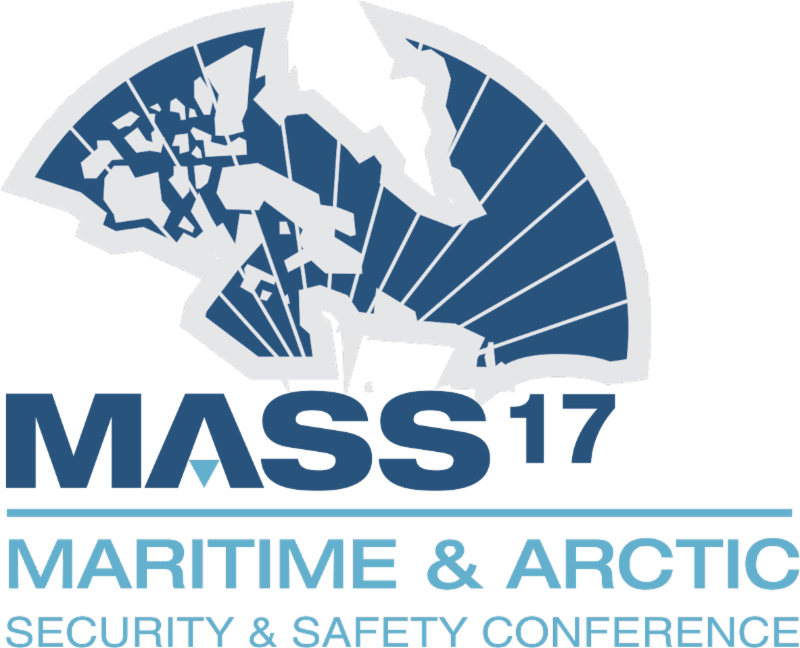 Maritime & Arctic Security & Safety Conference (MASS17) "Arctic Horizons," October 31- November 1, 2017 (Newfoundland & Labrador Canada). Now in its fifth year, MASS has gained an international reputation as a must-attend event to gain a wide perspective on challenges, opportunities and policies related to the Arctic and North Atlantic maritime environments. The aim of this Government of Canada and the Government of Newfoundland and Labrador supported international conference is to promote stakeholder collaboration, technological innovation, harsh environment research & development, and world-class education efforts that are contributing to both Maritime and Arctic issues. This two day conference will draw a diverse group of speakers and attendees representing government, military, Canadian and U.S. Coast Guard, industry, academic leaders, Northern Leaders, research and other key stakeholders. We hope you can join us to be a part of this important dialogue Maritime & Arctic Security & Safety Conference (MASS17) "Arctic Horizons," October 31- November 1, 2017 (Newfoundland & Labrador Canada). Now in its fifth year, MASS has gained an international reputation as a must-attend event to gain a wide perspective on challenges, opportunities and policies related to the Arctic and North Atlantic maritime environments. The aim of this Government of Canada and the Government of Newfoundland and Labrador supported international conference is to promote stakeholder collaboration, technological innovation, harsh environment research & development, and world-class education efforts that are contributing to both Maritime and Arctic issues. This two day conference will draw a diverse group of speakers and attendees representing government, military, Canadian and U.S. Coast Guard, industry, academic leaders, Northern Leaders, research and other key stakeholders. We hope you can join us to be a part of this important dialogue
 Polar Law Symposium 2017 and Rovaniemi Arctic Spirit, November 13-16, 2017 (Rovaniemi, Finland). The purpose of the Polar Law Symposium is to examine, in detail, the implications of the challenges faced by the Polar Regions for international law and policy and to make recommendations on appropriate actions by states, policy makers and other international actors to respond to these emerging and re-emerging challenges. The Rovaniemi Arctic Spirit Conference is integrated with the Polar Law Symposium, which will be organized by the Northern Institute for Environmental and Minority Law at the Arctic Center of the University of Lapland. Polar Law Symposium 2017 and Rovaniemi Arctic Spirit, November 13-16, 2017 (Rovaniemi, Finland). The purpose of the Polar Law Symposium is to examine, in detail, the implications of the challenges faced by the Polar Regions for international law and policy and to make recommendations on appropriate actions by states, policy makers and other international actors to respond to these emerging and re-emerging challenges. The Rovaniemi Arctic Spirit Conference is integrated with the Polar Law Symposium, which will be organized by the Northern Institute for Environmental and Minority Law at the Arctic Center of the University of Lapland.
Arctic Research Seminar with Courtney Carothers and Laura Zanotti: In a Climate of Change: Co-producing Knowledge and Community Researcher Relationships in the Leadership and Strength Project in Utqiagvik, Alaska, November 30, 2017 (Washington, DC USA). Courtney Carothers is an associate professor of fisheries in the College of Fisheries and Ocean Sciences at the University of Alaska Fairbanks. She is an environmental anthropologist currently researching how fishery systems are being remade by enclosure and privatization processes and the total environment of change facing Arctic Indigenous communities. Her work explores human-environment relationships, cultural values, equity, and well-being. She has co-edited two books and published over 30 articles and book chapters on these topics. She currently serves on a number of boards and working groups, including: the SEARCH (Study of Environmental Arctic Change) Science Steering Committee, the North Pacific Research Board Science Panel, the Alaska Sustainable Salmon Fund Expert Panel, the State of Alaska's Salmon and People. This event is part of the ARCUS DC Arctic Research Seminar Series.
AGU Fall Meeting, December 11-15, 2017 (New Orleans, LA USA). Fall 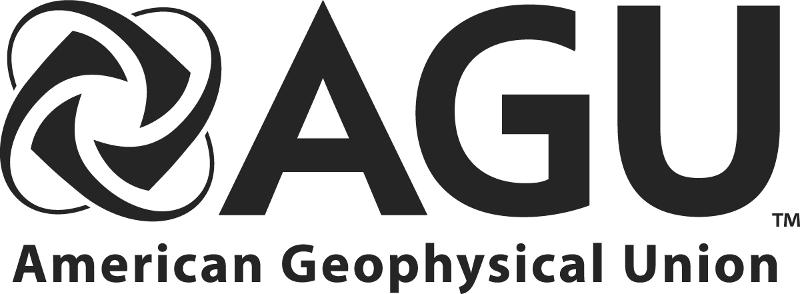 Meeting is the largest and preeminent Earth and space science meeting in the world. The 2017 Fall Meeting will take place in New Orleans, Louisiana, offering attendees the chance to discover a new location that features world renowned cuisine, music, arts and culture, and provides access to vital scientific ecosystems. Fall Meeting will offer a unique mix of more than 20,000 oral and poster presentations, a broad range of keynote lectures, various types of formal and informal networking and career advancement opportunities, scientific field trips around New Orleans, and an exhibit hall packed with hundreds of exhibitors.
ArcticNet invites the global Arctic research community to Arctic Change 2017! This conference will bring together Arctic researchers and students with Inuit, Northerners and government, industry and NGO stakeholders. The world's foremost Arctic scientists will present research findings and discuss impacts of climate change and modernization. With 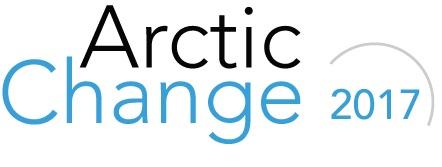 over 1500 participants expected, Arctic Change 2017 will be one of the largest trans-sectoral international Arctic research conferences held in Canada. We welcome students and early career researchers to participate in "Student Day" at the start of the Conference. See an excerpt from last year: ArcticNet ASM2016. over 1500 participants expected, Arctic Change 2017 will be one of the largest trans-sectoral international Arctic research conferences held in Canada. We welcome students and early career researchers to participate in "Student Day" at the start of the Conference. See an excerpt from last year: ArcticNet ASM2016.
ISAR-5 Fifth International Symposium on Arctic Research, January 15-18, 2018 (Tokyo, Japan).The fifth ISAR has been planned at the recommendation of the science steering committee of ISAR-4, which was held in Toyama, Japan in April 2015. The fifth ISAR will be devoted to discussions on environmental changes in the Arctic and their regional and global implications, to seek additional international scientific collaboration in this area by gathering, synthesizing and sharing information related to these changes occurring in the Arctic. Special emphasis will be placed on the fields of the social sciences and humanities, which were not included in the previous ISARs. ISAR-5 will consist of general sessions and special sessions. The general sessions will address the following topics: atmosphere; ocean and sea ice; rivers, lakes, permafrost, and snow cover; ice sheets, glaciers, and ice cores; terrestrial ecosystems; marine ecosystems; geospace; policies and economy; and social and cultural dimensions. Special sessions will be solicited on cross-cutting themes.
2018 Arctic Frontiers: Connecting the Arctic, January 21-26, 2018 (Tromso, Norway). Arctic Frontiers is an international arena on sustainable development in the Arctic. The conference addresses the management of opportunities and challenges to achieve viable economic growth with societal and environmental sustainability. Arctic Frontiers brings academia, government and business together to create a firmer foundation for decision-making and sustainable economic development in the Arctic. Join the Arctic Frontiers conference preparing the new Arctic future. The conference takes place the fourth week of January in the Norwegian city of Tromsø, known as the Gateway to the Arctic.
Alaska Marine Science Symposium, January 22-26, 2018 (Anchorage, Alaska.)
The Alaska Marine Science Symposium (AMSS) is Alaska's premier marine research conference. For over 20 years, it has brought together scientists, educators, resource managers, students, and the public to discuss marine research conducted in Alaskan waters. Over 700 people attend this 4-day long conference held annually in January. Each day of the conference highlights Alaskan marine ecosystems: Arctic (Tuesday), Bering Sea & Aleutian Islands (Wednesday), and the Gulf of Alaska (Thursday). Research topics discussed range from ocean physics, fishes and invertebrates, seabirds, marine mammals, to local traditional knowledge. Website for 2018 meeting is here.
Alaska Forum on the Environment, February 12-16, 2018 (Anchorage, Alaska)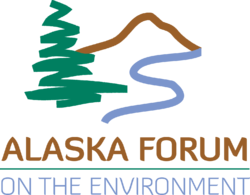 . AFE is a statewide gathering of environmental professionals from government agencies, non-profit and for-profit businesses, community leaders, Alaskan youth, conservationists, biologists and community elders. The diversity of attendees sets this conference apart from any other. The 2018 event will be our 20th year providing a strong educational foundation for all Alaskans and a unique opportunity to interact with others on environmental issues and challenges. . AFE is a statewide gathering of environmental professionals from government agencies, non-profit and for-profit businesses, community leaders, Alaskan youth, conservationists, biologists and community elders. The diversity of attendees sets this conference apart from any other. The 2018 event will be our 20th year providing a strong educational foundation for all Alaskans and a unique opportunity to interact with others on environmental issues and challenges.
The Effects of Climate Change on the World's Oceans, June 4-8, 2018 (Washington, DC USA).
The 4th International Symposium will bring together experts from around the world to better understand climate impacts on ocean ecosystems - and how to respond. The event is hosted by a variety of groups including International Council for the Exploration of the Sea (ICES), North Pacific Marine Science Organization (PICES), Intergovernmental Oceanographic Commission of UNESCO (IOC), and Food and Agriculture Organization of the United Nations (FAO).
 POLAR 2018, June 15-27, 2018 (Davos, Switzerland).POLAR2018 is a joint event from the Scientific Committee on Antarctic Research (SCAR) and the International Arctic Science Committee (IASC). The SCAR meetings, the ASSW and the Open Science Conference will be hosted by the Swiss Federal Institute for Forest, Snow and Landscape Research WSL under the patronage of the Swiss Committee on Polar and High Altitude Research. The WSL Institute for Snow and Avalanche Research SLF is organizing POLAR2018. POLAR 2018, June 15-27, 2018 (Davos, Switzerland).POLAR2018 is a joint event from the Scientific Committee on Antarctic Research (SCAR) and the International Arctic Science Committee (IASC). The SCAR meetings, the ASSW and the Open Science Conference will be hosted by the Swiss Federal Institute for Forest, Snow and Landscape Research WSL under the patronage of the Swiss Committee on Polar and High Altitude Research. The WSL Institute for Snow and Avalanche Research SLF is organizing POLAR2018.
17th International Congress of Circumpolar Health (ICCH17), August 12-15, 2018 (Copenhagen, Denmark). The ICCH congresses are held every third year in different locations in the circumpolar area and represent the largest scientific meetings worldwide on circumpolar health. The ICCH congresses serve as the primary source of information exchange and scholarly communication in issues relating to circumpolar health. More than 750 participants generally register and participate in each Congress, and more than 400 scientific papers or posters are usually presented.
Arctic Biodiversity Congress, October 9-11, 2018 (Rovaniemi, Finland). The second Arctic Biodiversity Congress is hosted by the Conservation of Arctic Flora and Fauna (CAFF), the biodiversity working group of the Arctic Council, and the Ministry of the Environment, Finland. The second Arctic Biodiversity Congress will build on the success of the first Congress, held in 2014 in Trondheim, Norway, and will bring together scientists, policymakers government officials, Indigenous representatives, Traditional Knowledge holders, industry, non-governmental organizations, and others to promote the conservation and sustainable use of Arctic biodiversity.
|
|

  
4350 N. Fairfax Drive, Suite 510
Arlington, VA 22203, USA
External links in this publication, and on the USARC's World Wide Web site ( www.arctic.gov) do not constitute endorsement by the US Arctic Research Commission of external Web sites or the information, products or services contained therein. For other than authorized activities, the USARC does not exercise any editorial control over the information you may find at these locations. These links are provided consistent with the stated purpose of this newsletter and the USARC Web site.
|
|
|
|
|
|
|
|
|
 [Canada] New Arctic Policy Coming in January. The federal government expects to have a new Arctic policy published by late January, according to a document obtained by iPolitics. Briefing notes under preparation for Stéphane Dion, Canada's ambassador to Germany and envoy to the European Union, suggest the Arctic Frontiers Conference - scheduled for January 21 and 22, 2018 in Tromso, Norway - would be a good place to introduce a new Canadian Arctic plan to Europe. iPolitics
[Canada] New Arctic Policy Coming in January. The federal government expects to have a new Arctic policy published by late January, according to a document obtained by iPolitics. Briefing notes under preparation for Stéphane Dion, Canada's ambassador to Germany and envoy to the European Union, suggest the Arctic Frontiers Conference - scheduled for January 21 and 22, 2018 in Tromso, Norway - would be a good place to introduce a new Canadian Arctic plan to Europe. iPolitics Caribou Comeback: Can the Species Ever Return to NB? When the leaves in the forests of New Brunswick change their colours, it signals to thousands of hunters to head into the woods in search of this provinces "big three" - moose, black bear, and whitetail deer. But the nearly century old absence of a fourth big game animal, the woodland caribou, has had some hunting groups question if the native animal could ever be reintroduced in the province. "They were here, as far as we know, since the glaciers left," said Gerry Parker, a former officer with the Canadian Wildlife Service who studied caribou in the Canadian Arctic. "They were here thousands of years." CBC News
Caribou Comeback: Can the Species Ever Return to NB? When the leaves in the forests of New Brunswick change their colours, it signals to thousands of hunters to head into the woods in search of this provinces "big three" - moose, black bear, and whitetail deer. But the nearly century old absence of a fourth big game animal, the woodland caribou, has had some hunting groups question if the native animal could ever be reintroduced in the province. "They were here, as far as we know, since the glaciers left," said Gerry Parker, a former officer with the Canadian Wildlife Service who studied caribou in the Canadian Arctic. "They were here thousands of years." CBC News


 Meeting is the largest and preeminent Earth and space science meeting in the world. The 2017 Fall Meeting will take place in New Orleans, Louisiana, offering attendees the chance to discover a new location that features world renowned cuisine, music, arts and culture, and provides access to vital scientific ecosystems. Fall Meeting will offer a unique mix of more than 20,000 oral and poster presentations, a broad range of keynote lectures, various types of formal and informal networking and career advancement opportunities, scientific field trips around New Orleans, and an exhibit hall packed with hundreds of exhibitors.
Meeting is the largest and preeminent Earth and space science meeting in the world. The 2017 Fall Meeting will take place in New Orleans, Louisiana, offering attendees the chance to discover a new location that features world renowned cuisine, music, arts and culture, and provides access to vital scientific ecosystems. Fall Meeting will offer a unique mix of more than 20,000 oral and poster presentations, a broad range of keynote lectures, various types of formal and informal networking and career advancement opportunities, scientific field trips around New Orleans, and an exhibit hall packed with hundreds of exhibitors. over 1500 participants expected, Arctic Change 2017 will be one of the largest trans-sectoral international Arctic research conferences held in Canada. We welcome students and early career researchers to participate in "Student Day" at the start of the Conference. See an excerpt from last year:
over 1500 participants expected, Arctic Change 2017 will be one of the largest trans-sectoral international Arctic research conferences held in Canada. We welcome students and early career researchers to participate in "Student Day" at the start of the Conference. See an excerpt from last year: 



